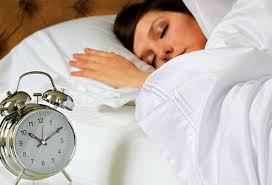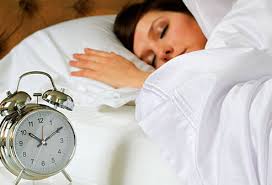I pretty much take a nap every single day, sometimes twice a day. When I’m don’t with class, even if it’s only noon, there’s a 99% chance I’m in my bed, ready to pass out. But nothing is worse than waking up from a deep sleep and feeling like you are half-dead. Especially in the evenings, specifically on gamedays, I’m sure a lot of people can relate to opening your eyes after a couple hours of sleep and feeling horrendous. But not matter how many times I wake up and regret the nap I just took, I will almost definitely make the same mistake the next day. How can just a few hours of sleep leave you feeling so great sometimes, and so terrible other times?
The answer to this is sleep inertia. This is when part of your body is still in its sleeping state and you are somehow unable to perform simple tasks. This usually happens when you wake up quickly. If you experience this in the morning, you probably automatically turn to your morning coffee. But when you experience this after an evening nap, its disorienting and confusing. Typically, sleep inertia lasts about 15-30 minutes after waking up, but it could actually last up to 4 hours.
Another issue that affects the level of sleep inertia that you experience is if you wake in the middle of a sleep stage. When you wake after a sleep stage, you normally feel amazing and wide-awake, but if you wake in the middle of one, your sleep efficiency is greatly reduced. When you use an alarm clock, your chances of sleep inertia are raised to almost 98%. This almost guarantees that you’ll feel terrible when you wake up in the morning.
sleep inertia are raised to almost 98%. This almost guarantees that you’ll feel terrible when you wake up in the morning.
This grogginess and tiredness that immediately follows a nap can be very bad for people who have things to do and only plan to lay down for “15 or 20 minutes.”
 This can even cause dangers while driving or performing other important tasks. The closer you are to waking up, the greater your risk is for waking up at the wrong time and suffering the consequences of sleep inertia. There are certain alarm clocks and apps that you can buy that try to memorize your sleep schedule and wake you up at the end of a stage of sleeping.
This can even cause dangers while driving or performing other important tasks. The closer you are to waking up, the greater your risk is for waking up at the wrong time and suffering the consequences of sleep inertia. There are certain alarm clocks and apps that you can buy that try to memorize your sleep schedule and wake you up at the end of a stage of sleeping.
After a nap, it is ideal to wake up in either stage 1 of sleep or tage 2 of sleep. It is not very beneficial to wake up in the middle of Slow Wave Sleep or REM sleep. Stages 1 and 2 are only the beginning stages of sleep, and your body will not have a very hard time recovering from being inactive. Stage 1 of sleep accounts for 9% of your sleep time, which is not when your alarm would normally go off to wake you up from your nap
Take-home message: Sleep Inertia isn’t usually dangerous but it feels pretty terrible. When your brain is inactive for a decent amount of time, it can only be expected that it’ll need some time to reboot. The best way to deal with this issue would be to purchase an alarm clock that wakes you slowly, or to get a phone app that regulates when you are in the right stage of sleep to wake up.
Works Cited
http://valleysleepcenter.com/12-facts-about-sleep-inertia/
http://www.psychology24.org/how-to-get-rid-of-sleep-inertia/
Photo
http://www.kaiserquotes.com/blog/helpful-tips-for-those-with-trouble-sleeping/
http://lookfordiagnosis.com/mesh_info.php?term=sleep%20stages&lang=1


 ter, but glutamate stimulates the body’s brain and the central nervous system. This allows scientists to rule out some possible third variables, but not all of them. But the discovery of the correlation between RLS and glutamate could possibly only be correlation.
ter, but glutamate stimulates the body’s brain and the central nervous system. This allows scientists to rule out some possible third variables, but not all of them. But the discovery of the correlation between RLS and glutamate could possibly only be correlation.




 major-less, I hope that within the next couple of semesters, I’m able to find something I’m very passionate about. I’m leaning towards the direction of business, but my indecisiveness stopped me from applying directly to Smeal. I’m looking forward to this class because it brings in the interesting side of science, without any pressure to memorize formulas or periodic tables.
major-less, I hope that within the next couple of semesters, I’m able to find something I’m very passionate about. I’m leaning towards the direction of business, but my indecisiveness stopped me from applying directly to Smeal. I’m looking forward to this class because it brings in the interesting side of science, without any pressure to memorize formulas or periodic tables.